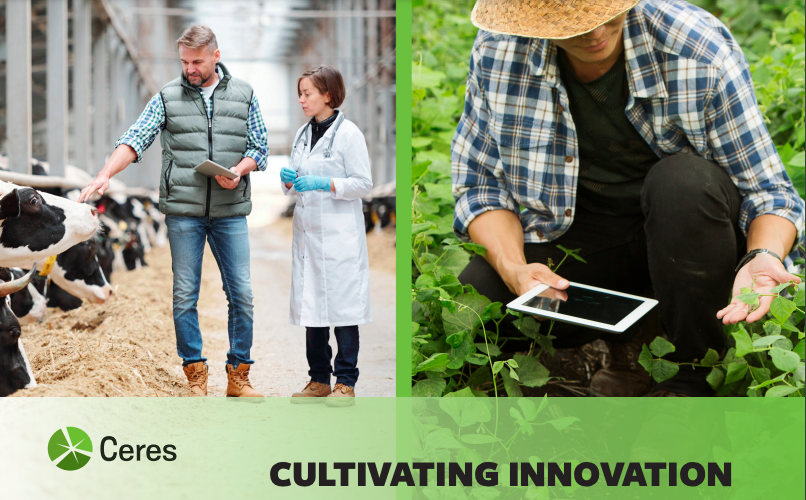Ceres Report Reveals Emission Reduction Key Strategies for Tech Startups and Investors in the Food Industry

As we approach the end of the decade, food companies are gearing up to meet emissions reduction deadlines, prompting a critical need for strategic investments in sustainable technology. A recent report published by Ceres, a sustainability nonprofit, sheds light on the pivotal role of technology in significantly decreasing emissions within the next few years.
Ceres’ latest report delves into how producers can employ strategic investments to drive down their carbon footprints, emphasizing the need for innovation to address challenging sources of emissions like enteric methane and nitrous oxide from fertilizer. Meryl Richards, Ceres’ acting program director, notes that while manufacturers are making strides in creating more sustainable supply chains, there’s a gap in investment for the growth of these efforts.
The report underscores the importance of forward-thinking initiatives like The 100+ Accelerator, backed by major industry players such as AB InBev, Coca-Cola, and Unilever. This accelerator program aims to test agricultural solutions through providing up to $100,000 to startups implementing tech equipment in the food industry. Key solutions include technology that reduces methane emissions, such as feed additives like those utilized by Ben & Jerry’s, which claims an 82% reduction in cow emissions through the use of red seaweed additives.
Ceres points to methane-capturing wearable devices for cattle, exemplified by the startup Zelp, funded by dairy giant Danone and in partnership with agriculture giant Cargill. Additionally, the report encourages exploration into vaccines for cattle that target methane-producing microbes.
Venture capital investments in food tech, a sector that has experienced a slowdown in recent years, are identified as a potential avenue for manufacturers to drive down emissions. CPG venture capital arms like Tyson Ventures, ADM Ventures, and General Mills’ 301 Inc. are highlighted for their role in investing in startups that offer solutions for emissions reduction in their supply chains.
While the report’s focus on methane emissions from livestock highlights the meat sector, Ceres emphasizes that investing in new efforts in the agricultural space can benefit producers across the entire industry. Innovations addressing emissions from fertilizer, such as green ammonia fertilizer and research on perennial grains with deeper root systems, are highlighted as promising avenues.
Nanofertilizers, highlighted in the report, have the potential to reduce fertilizer application by 20%, minimizing associated nutrient loss on farms. Ceres also explores agrivoltaics, an experimental approach involving planting crops beneath solar panels in livestock pastures, which could nearly eliminate carbon dioxide emissions from a farm’s energy use when combined with electric tractors and equipment.
Ceres advocates for a multi-pronged strategy, combining in-house R&D, pilot tests, and support for market development. Richards emphasizes that companies should also engage in advocacy aligned with research needs to ensure a comprehensive approach as food producers tackle their emissions.
You can download the report here.


Responses